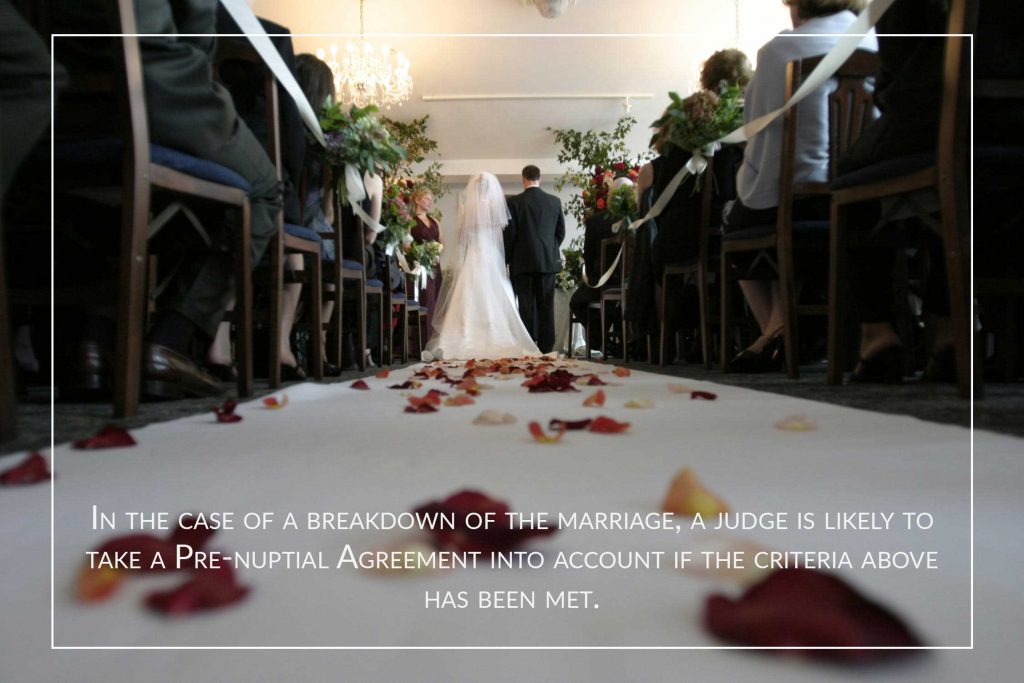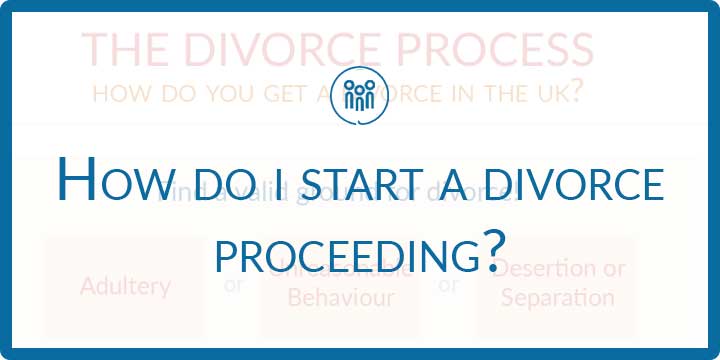Pre-Nups and Post-nups are not legally binding in the UK. However, more weight is given to them in court now, provided the agreement is a “qualifying agreement”.
What makes a Pre-Nup a “qualifying agreement”?

For a Pre-Nup to meet the criteria of a “qualifying agreement”:
- There must be full financial disclosure of both parties’ assets before the agreement is made; no assets should be hidden by either party
- Both parties must receive independent legal advice about the agreement from different Solicitors
- The agreement has to have been signed no later than 28 days before the wedding
- The agreement must not be signed under duress or pressure by either party
In the case of a breakdown of the marriage, a judge is likely to take a Pre-nuptial Agreement into account if the criteria above have been met.
A bit of history into Pre-Nup Agreements
Pre and Post-Nuptial Agreements were regarded as void and unenforceable as a matter of Contract Law. This was because on the view that spouses had a duty to live together in the absence of grounds for a divorce, and this could not be revoked by a private agreement.
What brought a change in the law that gave Pre-Nups more weight in court?
Recent case law has established that Courts’ objections can no longer apply to Pre-Nups.
Mcleod v Mcleod
An American couple married in Florida in 1994. There was a significant difference in wealth and age gap between them, Mr McLeod was 49 with a an estimated wealth of £14 million while Mrs McLeod was 27 and a student.
The couple made a pre-nup prior to their wedding moving to the Isle of Man in 1995 and had 5 children together. They renewed their pre-nup in 2002. The marriage broke down in 2003 and divorce proceedings were started. During the financial proceedings in 2005, Mrs McLeod wanted full financial provision and the agreement ignored, while Mr McLeod wanted the Pre-Nup enforced.
The Manx Court awarded Mrs McLeod financial provisions, ignoring the agreement, which was appealed by Mr McLeod. The appeal court again decided that the court should determine suitable provisions. Mr McLeod appealed to the Privy Council as a final option.
The Privy Council, under Baroness Hale, found the agreement was valid, binding and enforceable. This was on the basis that the post nuptial agreements are no longer contrary to public policy.
However, the Privy Council stopped short of declaring that Pre-Nups should have the full force of the law behind them.
Radmacher v Grantino
The couple were married in London in 1998. The husband, Mr Grantino, was French and worked in banking while the wife, Ms Radmacher, was German and came from an affluent family. The couple made a pre-nup before marriage, but Mr Grantino didn’t obtain independent advice on the agreement.
The marriage broke down in 2006 after 8 years of marriage and had produced 2 children. At the time of the divorce and subsequent financial proceedings, Mr Grantino had left banking and was working as a researcher. He applied for financial provisions and was awarded £5.5 million by the court. The agreement was taken into account but its weight was reduced in the final decision.
Ms Radmacher appealed the decision in the Court of Appeal, where the agreement was given decisive weight. According to the judgement of the court, Mr Grantino should only be granted provision for his role as the father of the two children and not for his own long-term needs.
Mr Grantino appealed to the Supreme Court, but the appeal was dismissed.
Final thoughts on Pre-Nups
Although the Courts will still have overriding power to change or vary the Agreements in the interest to meet fairness for the parties involved, more weight is given now, and the Agreement will be considered. However, it will not be the sole consideration in a divorce – other factors or circumstances will be taken into account.



